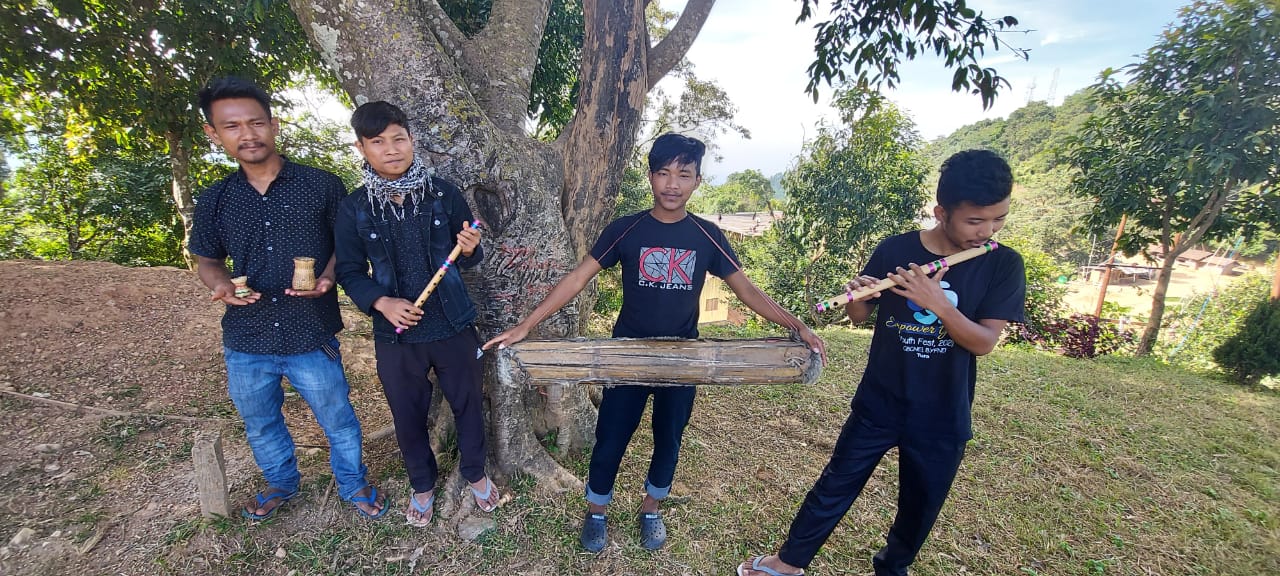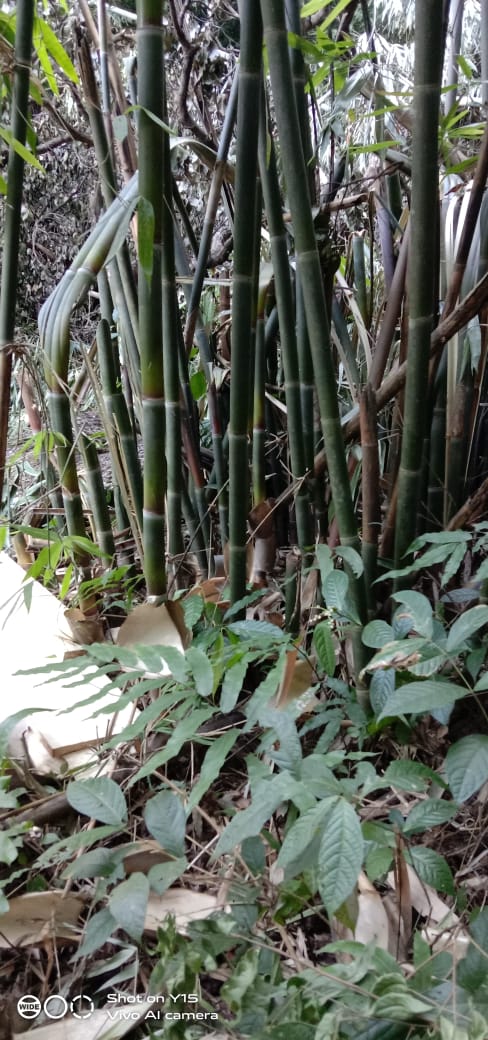The surge in cultivating bamboo for architectural and handicraft purposes is evident in various parts of northeast India; particularly in the quaint village of Darichikgre. The village of Darichikgre is located in West Garo Hills district of Meghalaya. With plenty to gain from the rich foliage of bamboo present in and around the village, several forward thinking youth initiated the setting up of a ‘bamboo school’ in the village.
The school’s founding members – Benibirth B Marak, Penam Marak, Adriel Marak and Serifer Marak form the core group of forward thinking youth of Darichikgre. The group understood the various advantages which bamboo offers. As bamboo requires considerably less time to grow, and offers stronger compressive strength than cement or wood and greater elasticity than steel, it therefore has high potential for being the base product for architecture and design projects.

(File Photo) of Benibirth B Marak, Penam Marak, Adriel Marak and Serifer Marak founders of Bamboo School
Bamboo has been used traditionally for creating various crafts in Darichikgre; though the local artisans are bogged down by a decline in demand for their products. To address the burning issue of loss of livelihood for the traditional artisans, the bamboo school’s founding members took the lead to provide a strong resource pool for the local artisans, by first replanting seven specific varieties of bamboo which are native to the village. The seven varieties of bamboo, which the founding members replanted, are Wada, Watre, Wama, Wagi, Wachal, Wasim and Watibok.
To fulfill the needs of the local artisans, the village’s youth prioritized the growing of the Wada variety of bamboo over the other varieties. If a particular variety of bamboo is considered to be endangered, the local community regulates the harvesting and commercialization of the bamboo shoot. Bamboo shoot is one of the local population’s favorite delicacies. Hence, it was crucial for the village’s youth to sensitize the larger local population on the need to allow the endangered bamboo to grow to its expected size, by not harvesting all the available bamboo shoot.
The village youth were also recognized as top innovators by the government of Meghalaya in the E-champion Challenge that was conducted in 2019; and were therefore awarded one lakh Rupees. As part of the challenge, the youth were expected to showcase innovation and uniqueness in their project; and they perfectly met the judges’ expectations, with their proven expertise, combined with their forward thinking and collective project implementation.
 Translate
Translate





